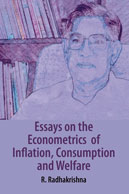New Releases...
Download Catalogue...
Download Excel Data
Download PDF Catalogue
You will get a Excel file with detail about catalogue.
You will get PDF file with detail about catalogue.
Detailed info...

Hard-cover • 2007
Pages: 1150
ISBN: 8171885934
INR 1995
+ Add to Cart
Publisher:
Academic Foundation
Indian Foreign Policy
Challenges and Opportunities
Atish Sinha‚ Madhup Mohta (Eds.)
About the Book
<p>The world is now engaged with India—already established as a major power, advancing in every sphere of development: political, diplomatic, socio-economic, scientific, technological, and cultural. The distinguished foreign affairs analysts, scholars and eminent diplomats invited by the Foreign Service Institute (Government of India) to write chapters for this book on Indian foreign policy, have provided topical insights into current developments as well as presenting a long-term perspective. Covering as it does, India and the United Nations, neighbouring countries, regional foreign policy, in Asia, Africa, South America and with China, Japan, the European Union, Russian Federation and the United States, this is the standard, comprehensive, authoritative book on Indian foreign policy.</p>
<p> </p>
<p>Key issues discussed include:</p>
<p>India’s global profile</p>
<p>Multilateral institutions</p>
<p>Regional foreign policy</p>
<p>Bilateral relations</p>
<p>National security and foreign relations</p>
<p>Nuclear energy and environment</p>
<p>Foreign economic policy</p>
<p>Heritage, culture and diplomacy</p>
<p> </p>
<p><br />
<strong>Foreign Service Institute(FSI): </strong> </p>
<p>Established in 1986, with the approval of Prime Minister Rajiv Gandhi, FSI is now into its twentieth year, meeting the professional service requirements of the Ministry of External Affairs of India. The FSI also has cooperation programmes with Foreign Service Institutions in twenty-eight foreign countries in Asia, Europe, Africa, North America and South America. Since 1992, FSI has received more than a thousand foreign diplomats from more than hundred countries participating in FSI’s professional courses for foreign diplomats. FSI has been drawing upon its experience and expertise from the widest range of sources to evolve into a think-tank.</p>
About the Author(s) / Editor(s)
<p><strong>Atish Sinha, </strong>career diplomat since 1970; served in Bangladesh, USA, Thailand, Kuwait, Nepal, Canada, Nigeria. Presently Dean, Foreign Service Institute.</p>
<p><br />
<strong>Madhup Mohta,</strong> graduated in Medicine from All India Institute of Medical Sciences. Career diplomat since 1986, he served in Hong Kong, Nepal and Thailand; Director, Indian Council of Cultural Relations; and presently, Director, Foreign Service Institute, New Delhi. Well known poet. Has edited many magazines and books.</p>
Contributors
<p>Rajendra M. Abhyankar, Director, Centre for West Asian Studies, Jamia Millia Islamia, New Delhi. Formerly career diplomat, he has been Ambassador to the EU, Belgium, Luxembourg, Syria, Turkey, and Cyprus. He has also served as Secretary, Ministry of External Affairs, Government of India.</p>
<p> </p>
<p>Talmiz Ahmad, career diplomat since 1974; he has been Ambassador to Saudi Arabia and Oman; Additional Secretary (International Cooperation) in the Ministry of Petroleum and Natural Gas (2005-06), Government of India. Since April 2006, Director-General of the Indian Council of World Affairs (ICWA).</p>
<p> </p>
<p>Hamid Ansari is Chairperson of the National Commission for Minorities and a former Permanent Representative to the UN and Ambassador to Iran and Saudi Arabia. He has been Vice-Chancellor of the Aligarh Muslim University, Member of the National Security Advisory Board and Distinguished Fellow at the Observer Research Foundation.</p>
<p> </p>
<p>Ishrat Aziz, formerly career diplomat, served in Baghdad, Rabat, Beirut, San Francisco. He has been Ambassador to UAE, Saudi Arabia, Brazil, and Tunisia.</p>
<p> </p>
<p>K. Shankar Bajpai, presently Chairman of the Delhi Policy Group. Formerly career diplomat, he has been Secretary, Ministry of External Affairs; Government of India’s Representative in Sikkim; Ambassador to the Netherlands, Pakistan, China and the US. Subsequently, he has also been Visiting Professor at the University of California, Berkeley and Professor at the Brandeis University.</p>
<p> </p>
<p>Harsh Bhasin, currently Visiting Professor of International Relations at the State University of New York, Stony Brook (USA). Formerly career diplomat, he has been envoy to South Africa, Botswana and Denmark; besides assignments in Hong Kong, Beijing, Washington, New York, Kuala Lumpur and Kathmandu.</p>
<p> </p>
<p>Sanjay Bhattacharyya, career diplomat since 1987, served in Beijing, Brussels, Hong Kong and Headquarters. He studied Economics in St. Stephen’s College and Delhi School of Economics and Chinese at Chinese University, Hong Kong.</p>
<p> </p>
<p>Prem K. Budhwar, formerly career diplomat, served in Moscow, Hong Kong, Hanoi, Hamburg, Bonn; Ambassador to Ethiopia, Brazil, High Commissioner to Canada.</p>
<p> </p>
<p>Anuradha M. Chenoy, is Professor, School of International Studies (SIS), Jawaharlal Nehru University, New Delhi; Chairperson and Director of Russian and Central Asian Studies, SIS. Her books include: The Making of New Russia; Militarism and Women in South Asia and Human Security: Concept and Implications, co-authored with Shahrbanou Tadjbakhsh.</p>
<p> </p>
<p><br />
A.K. Damodaran, formerly career diplomat, has served in Colombo, Prague, Bonn, Berlin, Beijing and Moscow. He has been Ambassador to Sweden, Italy; Visiting Professor, Centre for Diplomatic Studies, Jawaharlal Nehru University.</p>
<p> </p>
<p>Chandrashekhar Dasgupta, formerly career diplomat, has served in Mexico, Italy, Bangladesh, United Kingdom; at Permanent Mission in New York. He has been High Commissioner to Singapore, Tanzania; Ambassador to China and the European Union. Currently Distinguished Fellow, The Energy and Resources Institute (TERI). Dasgupta is the author of War and Diplomacy in Kashmir 1947-48.</p>
<p> </p>
<p>Muchkund Dubey, is currently President, Council for Social Development and Vice Chairman, Planning Commission of Sikkim. Formerly, Foreign Secretary; Professor, Jawaharlal Nehru University; High Commissioner to Bangladesh and Permanent Representative to UN Organisations in Geneva. He has authored several books and contributed chapters to various books and articles in reputed national and foreign journals. Professor Emeritus, Foreign Service Institute, New Delhi.Chinmaya R. Gharekhan, formerly career diplomat, served in Egypt, Democratic Republic of the Congo, Laos, Vietnam, former Yugoslavia. He has a quarter century of dealing with the United Nations in various capacities; Permanent Representative to the United Nations in Geneva and New York and Under Secretary General in the United Nations Secretariat.</p>
<p> </p>
<p>Arundhati Ghose, formerly career diplomat, served in various posts in Bangladesh, Europe and the Indian delegations to the UN in Paris and New York. Till 1997, Permanent Representative to UN offices in Geneva and Conference on Disarmament. She has been Ambassador to South Korea and Egypt; served on UNSG’s Disarmament Advisory Board (1998-2001); member of CSCAP Study Group on Countering the Proliferation of Weapons of Mass Destruction in the Asia Pacific. Currently, Member, UN Committee on Economic, Social and Cultural Rights.</p>
<p> </p>
<p>Baladas Ghoshal, Visiting Professor, Department of Intercultural Studies, Nagoya City University, Japan. Formerly, Professor and Chairman, Centre for South, Central, South-East Asian and South-West Pacific Studies, Jawaharlal Nehru University, New Delhi. He was also a Consultant to the United Nations Support Facility for Indonesian Recovery (UNSFIR) in Jakarta in 2003. He reads, writes and speaks Malay and Bahasa Indonesia and is currently working on Radical Islam and Regional Security in South-East Asia.</p>
<p> </p>
<p>Ranjit Gupta, formerly career diplomat, served in Cairo, New York (PMI), Gangtok, Jeddah, Frankfurt and Kathmandu; successively India’s Ambassador to Yemen (North), Venezuela, Oman, Thailand, Spain, and Head of the non-official Office in Taiwan. Currently Visiting Fellow, Institute of Chinese Studies, New Delhi.</p>
<p> </p>
<p>Abid Hussain, a distinguished Economist and Diplomat; Member of the Planning Commission; India’s Ambassador to USA (1991-1993); Member of the International Panel on Democracy and Development of UNESCO. Professor Emeritus, Foreign Service Institute, New Delhi.</p>
<p> </p>
<p>S. Jaishankar, career diplomat since 1977; served in Tokyo, Washington, Moscow, Colombo, Budapest; Ambassador to Czech Republic; presently Joint Secretary (Americas), closely involved in the India-United States civil nuclear negotiations.</p>
<p> </p>
<p>Nagendra Nath Jha, formerly career diplomat, served in Vienna, Permanent Mission in New York, Kathmandu; Ambassador to Ireland, Turkey, Kuwait; High Commissioner to Colombo.</p>
<p> </p>
<p>Afsir Karim, Maj. Gen (Retd.), specialist on issues related to terrorism and internal conflicts; published a number of books on the subject: Counter Terrorism: The Pakistan Factor (1991); Transnational Terrorism: Danger in the South (1993). Currently, editor of Aakrosh, a journal on Terrorism and Internal Conflicts.</p>
<p> </p>
<p>I.P. Khosla, formerly career diplomat, Secretary, Ministry of External Affairs, served in several assignments, mainly in the neighbouring countries, in Myanmar and successively, India’s Representative to Bhutan and then High Commissioner to Bangladesh, also Ambassador to Afghanistan.</p>
<p> </p>
<p>Krishan Kumar, career diplomat since 1984, served in Egypt, Saudi Arabia, Mozambique, Japan, Jordan, France, presently Deputy Chief of Mission in Brasilia.Mohan Kumar, career diplomat since 1981, served in Permanent Mission of India in Geneva and as Deputy High Commissioner to Sri Lanka (2001-2005). Currently, Joint Secretary, in charge of relations with Bangladesh, Sri Lanka, Maldives and Myanmar.</p>
<p><br />
Nagesh Kumar, Director-General of RIS (Research and Information System for Developing Countries, New Delhi). Previously served the UN University, Maastricht, and has been a consultant to the World Bank, ADB, UNCTAD, UNIDO, UN-ESCAP, and ILO. He is the recipient of the Exim Bank’s first international trade research award and is a GDN Research Medal winner.</p>
<p> </p>
<p>Dilip Lahiri, formerly career diplomat, he has been Ambassador to France, Spain; served in Bangladesh; Permanent Mission in New York; at Headquarters coordinating UN matters, and Dean, Foreign Service Institute. He has published articles on India’s nuclear and security policy, and edited Foreign Service Institute’s book on India’s Foreign Policy for the 21st century.</p>
<p> </p>
<p>Mani Singh Mamik, Commodore, a retired naval aviator; alumni of NDA, DSSC Wellington; holds MSc. and Ph.D. (Effectiveness of Sea Based Nuclear Weapons in International Relations) from University of Madras. He has served as Deputy Director General Defence Planning Staff; OSD to the Chief of Naval Staff for Strategic Affairs and also as faculty of DSSC, Wellington.</p>
<p> </p>
<p>Dalip Mehta, formerly career diplomat; Ambassador to Bhutan and the Central Asian Republics of Uzbekistan, Tajikistan and Turkmenistan; Secretary in the Ministry of External Affairs, Government of India and Dean, Foreign Service Institute, New Delhi till 2002. Dalip Mehta is a Trustee of the Dalai Lama’s Foundation for Universal Responsibility and a Director of the India-Bhutan Foundation.</p>
<p> </p>
<p>Jagat Singh Mehta, formerly career diplomat (1947-1980), Charge d’affaires, China (1963-1966); High Commissioner, Tanzania (1970-1974); Foreign Secretary, (1976-1979). He was involved in Negotiations on (i) Sino-Indian Boundary Question (1960);(ii) Compensation for Indians expelled from Uganda (1975);(iii) Comprehensive normalisation with Pakistan (1976); (iv) Salal Hydel Project (1976); (v) Withdrawal of Farakka from UN and Finalising Agreement (1977); and (viii) Separating Trade and Transit Treaties with Nepal (1978). He was Associate at Harvard (1969 and 1980) and Fellow at Woodrow Wilson Centre, Washington (1981). His publications include: Militarization in the Third World (1985); The March of Folly in Afghanistan (2002); and Negotiating for India (2006).</p>
<p> </p>
<p>Raja Menon, Rear Admiral (Retd.), was Indian Navy career officer till 1994. Subsequently, he authored three books: Sea Power and India’s Security; A Nuclear Strategy for India, and Weapons of Mass Destruction: Options for India. He headed the Naval Headquarters group that recently wrote the Indian Navy’s New Maritime Strategy. He is currently the Chairman of the Task Force on Net Assessment and Simulation in the National Security Council.</p>
<p> </p>
<p>C. Raja Mohan, Foreign Policy Analyst, with a Masters Degree in Nuclear Physics and Ph. D. in International Relations, was Professor of South Asian Studies, Jawaharlal Nehru University, New Delhi. Currently the Strategic Affairs Editor of the Indian Express. His publications include: Crossing the Rubicon, The Shaping of India’s New Foreign Policy and Impossible Allies: Nuclear India, United States and the Global Order.</p>
<p> </p>
<p>Madhup Mohta, graduated in Medicine from All India Institute of Medical Sciences. Career diplomat since 1986, he served in Hong Kong, Nepal and Thailand; Director, Indian Council of Cultural Relations; and presently, Director, Foreign Service Institute, New Delhi. Well known poet. Has edited many magazines and books.</p>
<p> </p>
<p>Deb Mukharji, formerly career diplomat, has served in Berne, Islamabad, Bonn, San Francisco. He was High Commissioner to Nigeria, Bangladesh and Ambassador to Nepal.</p>
<p> </p>
<p>G. Parthasarathy, formerly career diplomat; served in Moscow, Washington DC; Official Spokesman of the Ministry of External Affairs; Joint Secretary, Prime Minister’s Office; Ambassador to Myanmar; and High Commissioner to Cyprus, Australia, Pakistan.</p>
<p> </p>
<p>Hardeep Puri, career diplomat since 1974, served in Tokyo, Geneva, Colombo; Deputy High Commissioner in London, Permanent Representative to the UN in Geneva. He has been Ambassador to Brasilia since 2005.</p>
<p> </p>
<p>Lakshmi Puri, career diplomat since 1974, served in Tokyo, Geneva, Colombo; Ambassador to Budapest. Since 2002, on deputation as Director, Division on International Trade and Goods and Services and Commodities, UNCTAD, Geneva.</p>
<p> </p>
<p>C. V. Ranganathan, formerly career diplomat, served in Permanent Mission in New York, Bonn; Deputy Chief of Mission in Moscow; and Ambassador to Ethiopia, China and France.</p>
<p> </p>
<p>Krishna V. Rajan, formerly career diplomat, served as Advisor to the Minister of External Affairs; Secretary, Ministry of External Affairs; Ambassador to Algeria and Nepal. Served in diplomatic assignments in Washington DC and Paris. Presently, Member, National Security Advisory Board.</p>
<p> </p>
<p>Sunanda K. Datta-Ray, now Senior Research Fellow at Singapore’s Institute of Southeast Asian Studies, was Editor, The Statesman (Calcutta and Delhi); Visiting Fellow, Corpus Christi College, Oxford; Editor-in-Residence, East-West Center, Honolulu. He has practiced and taught journalism in Britain, India, the US and Singapore for nearly 50 years.</p>
<p> </p>
<p>Shyam Saran, Special Envoy, Prime Minister’s Office; formerly Foreign Secretary; Ambassador to Nepal, Indonesia, Myanmar; High Commissioner in Mauritius; and also served in Tokyo, Beijing; Permanent Mission of India, Geneva.</p>
<p> </p>
<p>Navtej Sarna, career diplomat since 1980, MEA’s Official Spokesman. He has served in Russia, Poland, Bhutan, Iran, USA and Geneva. He is the author of We Weren’t Lovers Like That, The Book of Nanak, Folk Tales of Poland.</p>
<p> </p>
<p>Aftab Seth, formerly career diplomat, served as Ambassador to Greece, Vietnam, Japan. During 2004-2006, Professor and Director of Global Security Research Institute, Keio University (2004-2006). Presently, Chairman, International Advisory Committee.</p>
<p> </p>
<p>J.C. Sharma, formerly career diplomat; Secretary, Ministry of External Affairs; Member Secretary of the High Level Committee on Indian Diaspora. He has made significant contribution in formulation of India’s policy towards its Diaspora; organised first and second Pravasi Bhartiya Divas. He has headed Indian Consulates in Vancouver and Chicago and the Embassies in Cambodia and Vietnam.</p>
<p> </p>
<p>Gurjit Singh, career diplomat since 1980, Ambassador to Ethiopia, Djibouti and Representative of India to the African Union; served in Tokyo, Colombo, Nairobi and Rome. He has published The Abalone Factor–An Overview of India-Japan Business Relations in 1997 which won the Bimal Sanyal Award for Research by the Foreign Service Institute.</p>
<p>Jasjit Singh, Air Commodore (Retd.) is currently Director, Centre for Strategic and International Studies, New Delhi. Author and editor of more than three dozen books including Air Power in Modern Warfare (1985); Non-provocative Defence (1989); Security of Third World Countries (1993); India’s Defence Spending (2000), and Nuclear Deterrence & Diplomacy (2004). Member of the National Security Advisory Board.</p>
<p> </p>
<p>Atish Sinha, career diplomat since 1970; served in Bangladesh, USA, Thailand, Kuwait, Nepal, Canada, Nigeria. Presently Dean, Foreign Service Institute.</p>
<p> </p>
<p>Krishnan Srinivasan, formerly career diplomat, High Commissioner to Zambia, Nigeria and Bangladesh; Ambassador to Netherlands; Foreign Secretary (1994-95); Commonwealth Deputy Secretary-General (1995-2002); Fellow of Wolfson College, Cambridge and School of Advanced Studies, London (2002-2005); Fellow of Maulana Azad Institute for Asian Studies, Kolkata (2006-2007); and Visiting Professor, ASCI, Hyderabad from 2005.</p>
<p> </p>
<p>P. Stobdan, served in Central Asia as the Director of the Indian Cultural Centre, Almaty, Kazakhstan; Joint Director, National Security Council Secretariat (NSCS); Senior Fellow, Institute for Defence Studies and Analyses (IDSA), New Delhi; currently Director of the Centre for Strategic and Regional Studies (CSRS), University of Jammu.</p>
<p> </p>
<p>K. Subrahmanyam, Strategic and Foreign Affairs Analyst; Convener of the first National Security Advisory Board; Chairman of Global Strategic Task Force. Formerly, Director, Institute for Defence Studies & Analyses (IDSA), New Delhi and Secretary, Defence Production, Ministry of Defence.</p>
<p> </p>
<p>Navdeep Suri, career diplomat since 1983; served in Cairo, Damascus, Washington DC, Dar-es-Salaam, London, and at Headquarters as Joint Secretary (Africa). Presently, Consul General in Johannesburg.</p>
<p> </p>
<p>Pavan K. Varma, career diplomat since 1976; served in Sofia, Bucharest, Permanent Mission in New York; Director, Nehru Cultural Centre, Moscow and The Nehru Centre, London; Official Spokesman, Ministry of External Affairs. Well known author of many books including bestselling Being Indian. Presently Director General, Indian Council for Cultural Relations.</p>
Print Brochure...
Print as it is
Customised brochure
You will get a printout of what you see on your screen under 'Detailed Info'(Uneditable).
You will have the opportunity to edit the text and adjust the extent to fit on A4 size sheet or more accordingly as you desire. Plus, you can download the edited/customised Brochure or simply print it (CTRL + P).


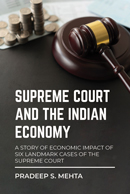


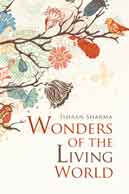
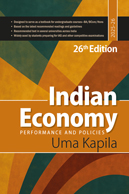
-web-194.jpg)
-front.jpg)
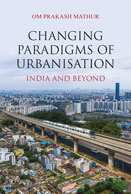






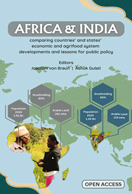
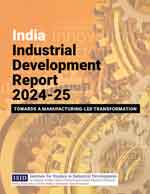
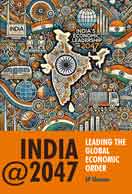
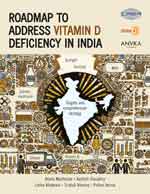
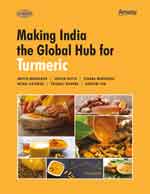
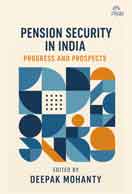
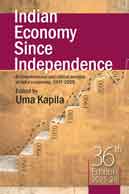
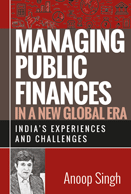
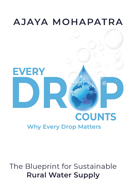
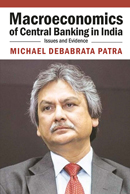
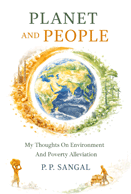
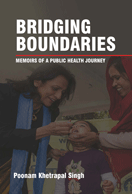

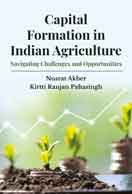



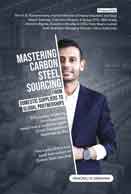







-COVER-web-194.jpg)





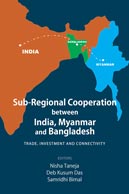






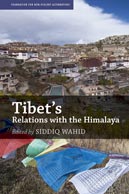



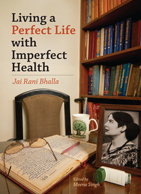












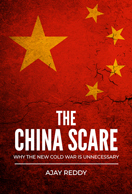
.jpg)






